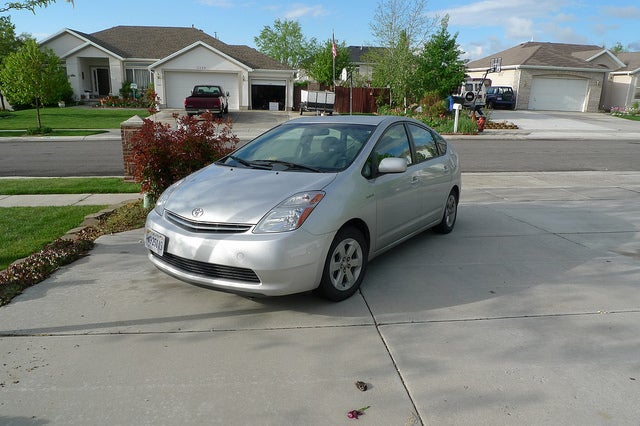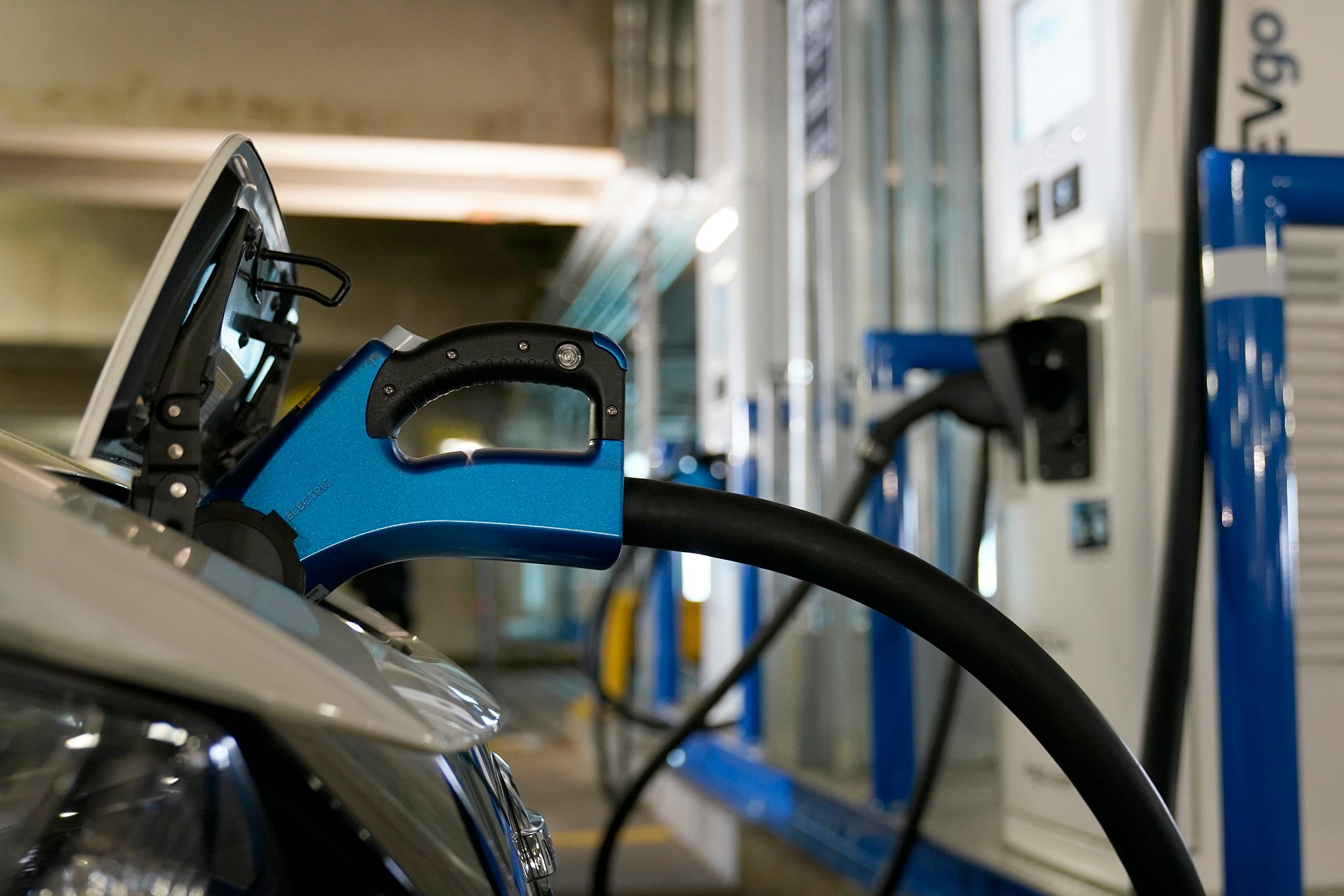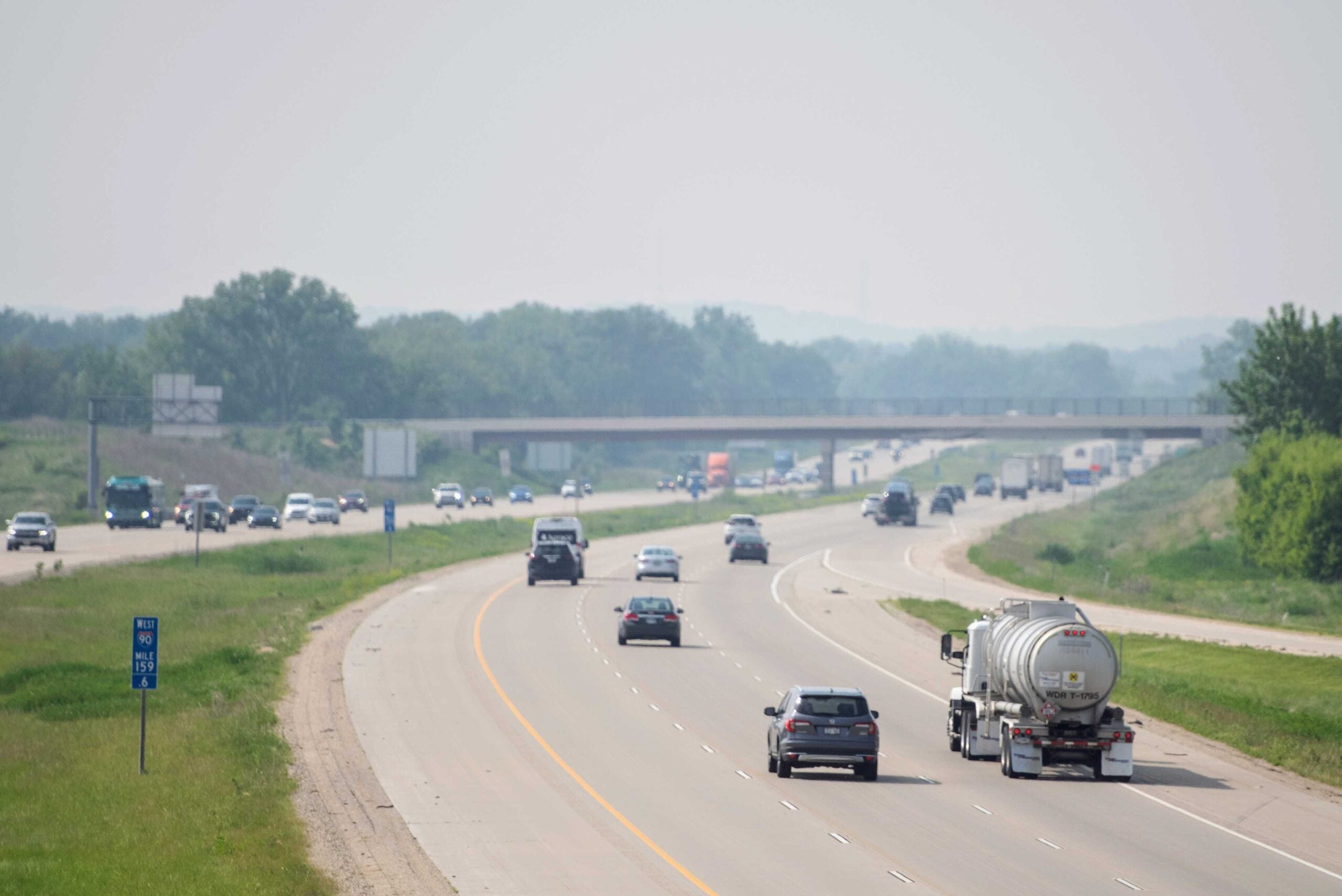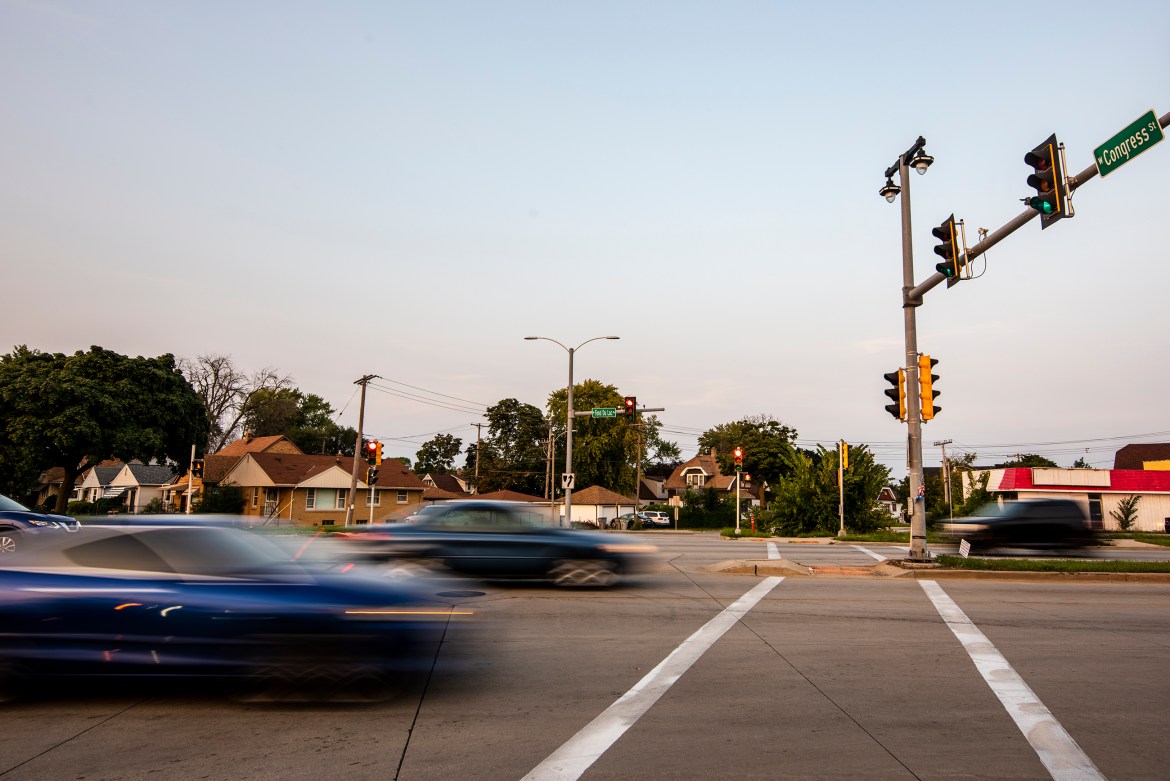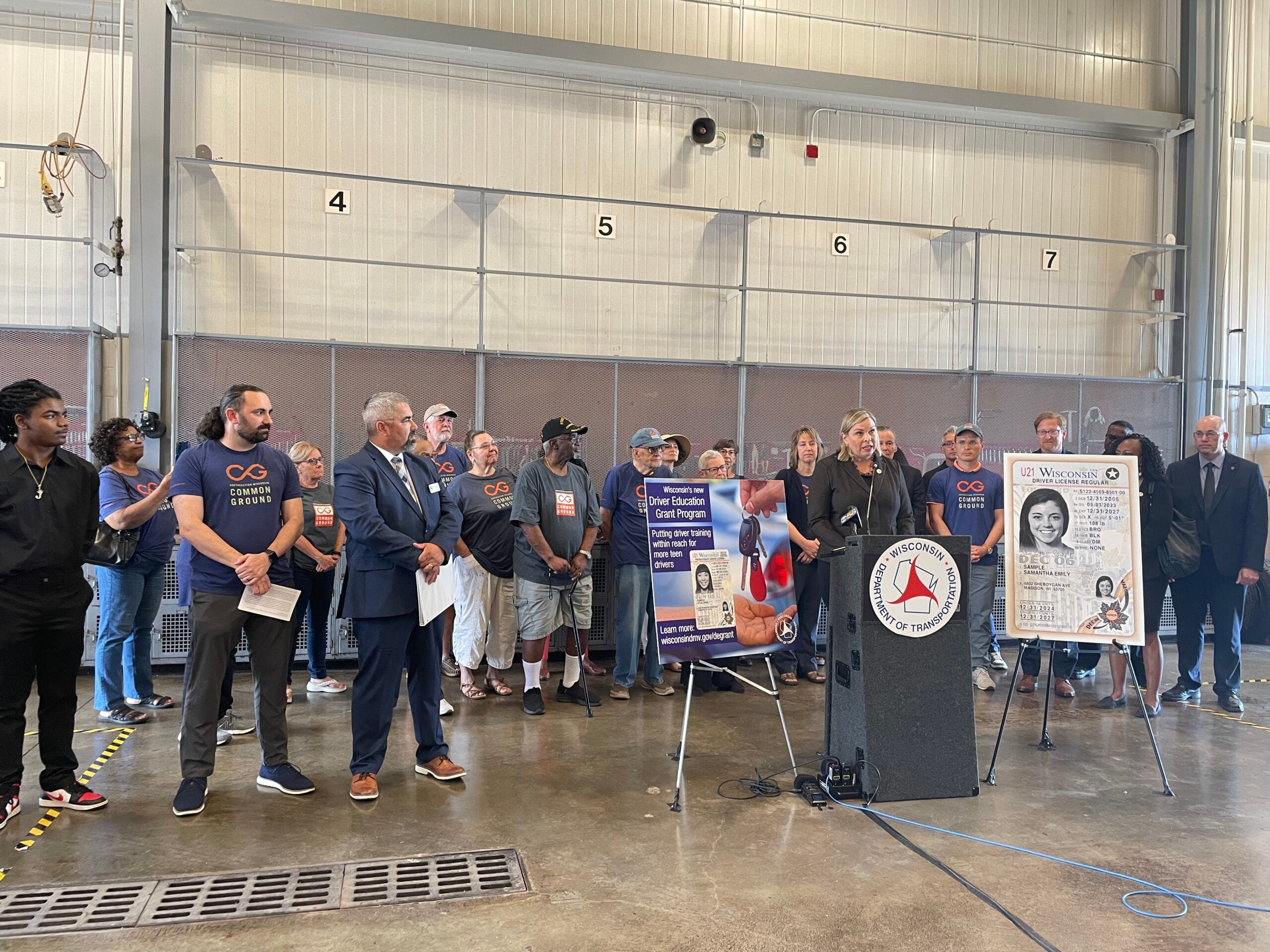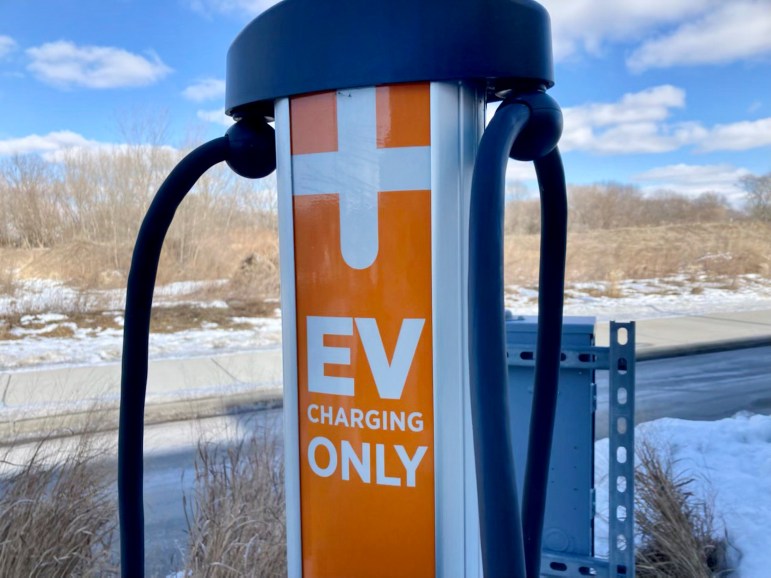The Walker administration’s plan to raise fees and taxes to help fund transportation projects has met with a lot of opposition — including from owners and sellers of hybrid cars.
Shaky tax revenue, uncertainty about federal highway dollars and other factors have prompted the state Department of Transportation to release a two-year state budget plan that would increases taxes and fees by $750 million. A proposed $50 annual fee on gas-electric hybrids and electric vehicles is part of the proposal, and is raising concerns for drivers of those alternative-fueled four wheelers.
A number of such vehicles are on Wisconsin roads today, getting better gasoline mileage than vehicles did years ago. Those drivers are paying less in the way of per-gallon gas taxes.
News with a little more humanity
WPR’s “Wisconsin Today” newsletter keeps you connected to the state you love without feeling overwhelmed. No paywall. No agenda. No corporate filter.
Justin Fons is known to drive his 2014 Ford plug-in hybrid through the streets of Milwaukee. The vehicle can run on stored electricity for up to 20 miles, then switches to gasoline. Fons said that combined, he gets great gas mileage.
“With the mix of my city driving — which is all electric — and my highway driving — which is all gas, or mostly gas — I’m averaging 82.1 miles per gallon in this vehicle,” he said.
Fons said that with his plug-in, he wouldn’t mind paying an annual fee to the state to help fund road maintenance, but he opposes charging owners of non plug-in hybrids the $50.
“They are already paying the gasoline tax as a motor fuel,” said Fons. “They don’t get any additional power outside of that.”
A prominent seller of hybrids is firmly against the state’s proposal. Chris Schneider is president and advanced fuel vehicle guru at Honda Motorwerks, a car dealership in La Crosse. Schneider said that hybrids usually cost a few thousand dollars more than conventional vehicles, and the state has already been tacking on 5 percent to that.
“I think that hybrid owners have already paid additional state taxes when they spend the extra money that is required to invest in higher technology,” he said. “So an additional fee would essentially be double taxation.”
For example, Schneider said, one of the Honda hybrid models might cost an extra $2,300, making the additional state sales tax paid more than $100.
“And then depending on your county or community, there may be additional fees that are going to those entities for the difference between a hybrid and a conventional car like it,” Schneider said.
Gov. Scott Walker has been out of Wisconsin for most of the period since the DOT released its budget proposal, leaving DOT Secretary Mark Gottlieb as the main spokesperson for the document. He says the hybrid and electric fee proposal is fair.
“Obviously there are many benefits to driving an alternatively fueled vehicle — environmental benefits, cost benefits to the vehicle owner. Those are all still there. What we are trying to capture here with this fee is the differential fuel taxes that are not being paid by those vehicles,” said Gottlieb.
On Monday, however, more groups criticized the state’s transportation funding plan. Manufacturers, auto and truck dealers, petroleum marketers and the state’s restaurant association all questioned whether the amount of the proposed revenue increases is appropriate. The groups also said the plan may put Wisconsin employers at a competitive disadvantage.
Toyota also said in an emailed statement to WPR that it opposed “efforts in states to add fees or taxes that unnecessarily favor one technology over another.” It noted that studies show that alternatively fueled vehicles don’t inflict equal amounts of damage to roads as “heavy-duty” vehicles do.
Gov. Walker has said significant changes are likely in the DOT’s proposal. Gottlieb last week wouldn’t say if had run the package past the governor to begin with.
“I’m not going to discuss what internal communications took place putting the budget together,” Gottlieb said.
The governor is expected to make his transportation proposal in a couple of months.
Wisconsin Public Radio, © Copyright 2025, Board of Regents of the University of Wisconsin System and Wisconsin Educational Communications Board.

